Die Deutschen Episode Rating Graph
Oct 2008 - Dec 2010
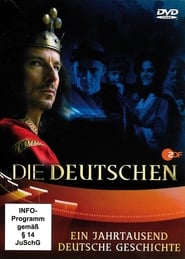
Oct 2008 - Dec 2010
7.2

| E1 | E2 | E3 | E4 | E5 | E6 | E7 | E8 | E9 | E10 | |
|---|---|---|---|---|---|---|---|---|---|---|
| S1 | ||||||||||
| S2 |
Browse episode ratings trends for Die Deutschen. Simply click on the interactive rating graph to explore the best and worst of Die Deutschen's 20 episodes.
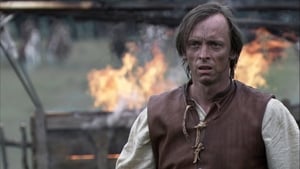
S2 Ep5
8.5
28th Nov 2010
It was the time of upheaval, the Reformation shook the existing order. In 1521, there was turmoil in Zwickau, Saxony: the young priest Thomas Müntzer (1489-1525), who preached at St. Mary's Church, turned against the ecclesiastical and secular authorities and demanded the God-given right to freedom and equality for all people. Müntzer was not a man of compromise. The church criticism of Luther, whom he had once admired, did not go far enough for him. Not only the papacy but also the secular order based on the estates were a thorn in his side.
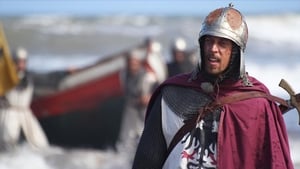
S2 Ep2
8.3
16th Nov 2010
"The wonder of the world" is what some contemporaries called the Staufer Frederick II (1194-1250), whose empire stretched from Sicily to the North Sea coast. In addition to German, he spoke Italian, French, Greek and Arabic, wrote poetry and philosophy, and wrote a book on falconry. As a small child he already possessed the German royal dignity, his mother, Constance of Sicily, had him crowned monarch there. On German soil, a bitter dispute over the throne was once again raging between the Hohenstaufen and Guelph dynasties. Once again, the princely camp was divided, and the pope got involved.
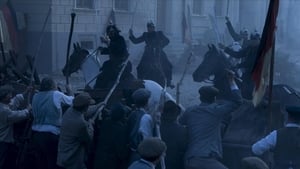
S1 Ep8
8.2
18th Nov 2008
An unknown hero. A revolution - in Germany? And by no means, as Lenin later smugly told the Germans, with a proper platform ticket in their pocket! In March 1848, good subjects became determined barricade fighters.
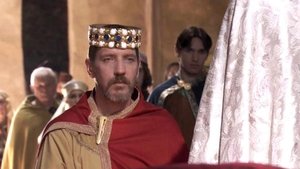
S2 Ep1
8.0
14th Nov 2010
He was already considered the "Father of Europe" by his contemporaries: Charlemagne (probably 748-814). He created a foundation that shaped the continent. Germans and French alike regard the legendary Carolingian as the progenitor.
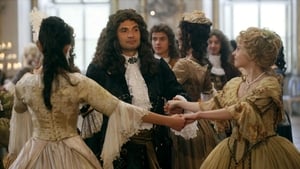
S2 Ep6
7.8
30th Nov 2010
He is considered one of the most enigmatic monarchs of modern times: Elector Friedrich August I of Saxony, known as "August the Strong" (1670 to 1733). His princely self-portrayal was comparable only to that of another European monarch: Louis XIV. August's court was to be in no way inferior to that of the French Sun King. Hundreds of festivities a year, balls, masquerades and animal hatches were organized by the king.
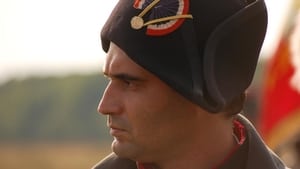
S1 Ep7
7.6
16th Nov 2008
Between freedom and repression. It is a foreign emperor, of all people, who catapults Germany into a national era: France's ruler of the century, Napoleon. His conquests and reforms brought the Germans closer together than ever before. What he succeeds in doing, no one had achieved before: the political awakening of the "German nation.
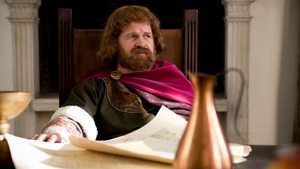
S1 Ep3
6.7
2nd Nov 2008
Rivalry in the family. He is the king of the Germans and wants to rule over the Occident as emperor: the Staufer Frederick Barbarossa. His empire extends as far as southern Italy. But his rule is disputed. Powerful rivals challenge the monarch - including his former ally Henry the Lion.
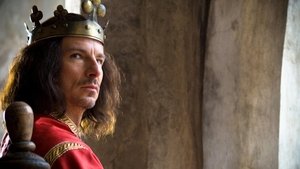
S1 Ep1
6.9
26th Oct 2008
The birth of the Germans. In the struggle of the German tribes against the Hungarians, something like a sense of community emerged under the leadership of King Otto I. By obtaining the imperial dignity, he laid the foundation for a unique system of rule.
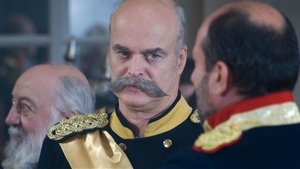
S1 Ep9
7.0
23rd Nov 2008
From Small-State Fighter to National Fighter. After the revolution of 1848, the unsuccessful attempt at "unity from below" now came "unity from above. Prussian Prime Minister Otto von Bismarck paved the way for the first German nation state.
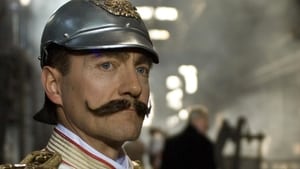
S1 Ep10
7.0
25th Nov 2008
A monarch between megalomania and depression. The German Empire at the beginning of the 20th century: too small to rule over others and too big for the balance of power in Europe. Kaiser Wilhelm II wanted to be a world power.
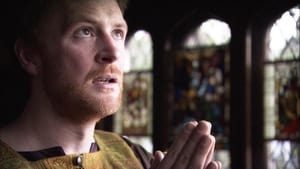
S2 Ep4
7.0
23rd Nov 2010
The reign of Charles IV (1316-1378) is one of the most dramatic periods in German history. Around the middle of the 14th century, the plague swept away a third of the Germans. The king who ruled during this terrible time was descended from the Luxembourg dynasty. Charles IV was born in Prague in 1316. His father John had married a Bohemian princess and thus became one of the most powerful men in the empire. In 1346, the ambitious Luxembourger succeeded in having his son Charles elected as counter-king to the incumbent Louis the Bavarian by paying horrendous bribes. Charles' position in the empire was initially weak, but the sudden death of Louis, a few months after the election, changed the situation.
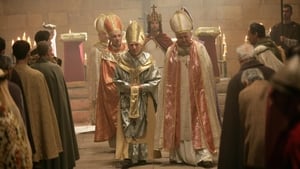
S1 Ep2
7.1
28th Oct 2008
The walk to Canossa. It is a power struggle such as has never been seen before: King versus Pope. Who is the stronger? It is about power in the kingdom of the Germans and in the Christian West - and about a unique gesture, the like of which has not been seen since: Henry IV's "Walk to Canossa.

S1 Ep1
6.9
26th Oct 2008
The birth of the Germans. In the struggle of the German tribes against the Hungarians, something like a sense of community emerged under the leadership of King Otto I. By obtaining the imperial dignity, he laid the foundation for a unique system of rule.

S1 Ep2
7.1
28th Oct 2008
The walk to Canossa. It is a power struggle such as has never been seen before: King versus Pope. Who is the stronger? It is about power in the kingdom of the Germans and in the Christian West - and about a unique gesture, the like of which has not been seen since: Henry IV's "Walk to Canossa.

S1 Ep3
6.7
2nd Nov 2008
Rivalry in the family. He is the king of the Germans and wants to rule over the Occident as emperor: the Staufer Frederick Barbarossa. His empire extends as far as southern Italy. But his rule is disputed. Powerful rivals challenge the monarch - including his former ally Henry the Lion.

S1 Ep4
7.2
4th Nov 2008
The reformer and promoter of the German language. At first, he was just a simple monk, a doubting and struggling theologian. He became an epochal figure who united and divided Germans like no other before - without meaning to: Martin Luther.
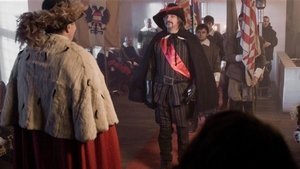
S1 Ep5
7.2
9th Nov 2008
Genius commander or traitor? It is a battle for religious and political supremacy in the empire and in Europe: Catholics against Protestants. One man is to defeat the supporters of the Reformation for the emperor: the general Albrecht von Wallenstein.
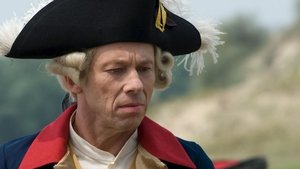
S1 Ep6
7.6
11th Nov 2008
Duel between Prussia and Austria. After the Thirty Years' War, the Holy Roman Empire of the German Nation resembled a territorial puzzle. In the absence of a central power, new powers emerged on the periphery: Prussia and Austria.

S1 Ep7
7.6
16th Nov 2008
Between freedom and repression. It is a foreign emperor, of all people, who catapults Germany into a national era: France's ruler of the century, Napoleon. His conquests and reforms brought the Germans closer together than ever before. What he succeeds in doing, no one had achieved before: the political awakening of the "German nation.

S1 Ep8
8.2
18th Nov 2008
An unknown hero. A revolution - in Germany? And by no means, as Lenin later smugly told the Germans, with a proper platform ticket in their pocket! In March 1848, good subjects became determined barricade fighters.

S1 Ep9
7.0
23rd Nov 2008
From Small-State Fighter to National Fighter. After the revolution of 1848, the unsuccessful attempt at "unity from below" now came "unity from above. Prussian Prime Minister Otto von Bismarck paved the way for the first German nation state.

S1 Ep10
7.0
25th Nov 2008
A monarch between megalomania and depression. The German Empire at the beginning of the 20th century: too small to rule over others and too big for the balance of power in Europe. Kaiser Wilhelm II wanted to be a world power.
Loading...
The first episode of Die Deutschen aired on October 26, 2008.
The last episode of Die Deutschen aired on December 14, 2010.
There are 20 episodes of Die Deutschen.
There are 2 seasons of Die Deutschen.
No.
Die Deutschen has ended.